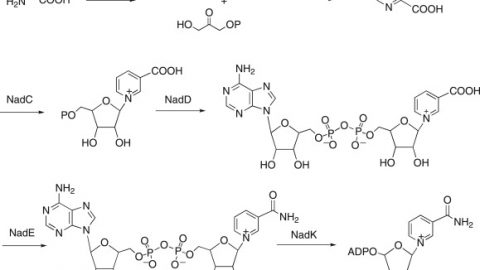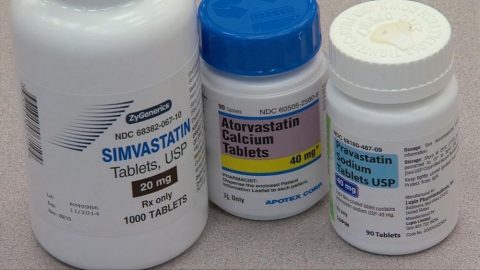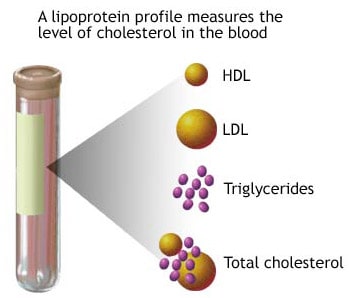Despite the volume of research currently carried out on beta-alanine (a selection including my own papers) in relation to exercise based performance enhancement, one issues that still concerns me is safety!
To date we have data showing that Beta-alanine when given for up to 12 weeks does not cause and measured change in those clinical blood markers widely used to show safety. However, 12 weeks is relatively short duration, so what could be a danger from long term use?
Well there are a few studies that may provide some insight!
What dangers: Is a history of use enough?
One thing I often heard is ‘x nutrient has been consumed for years in our general diet and at a dose found in dietary supplements‘, as such it must be safe. However, this generalization is ultimately flawed as sodium and saturated fats are also abundant in our diets and we know the consequences in relation to cardiovascular disease when taken in excess. The take home is natural is not always synonymous with healthy.
Similarly, beta-alanine is abundant in meat sources and especially those animals (meat source) exposed to prolonged periods of hypoxia (sprinters or diving mammals).Taking the premise that we could get beta-alanine from food in a quantity to match the commonly recommended supplement dose (3.2g/d) would mean we need to consumer 400g of whale beef or 600g of turkey. Is that really likely? If it is not, have our bodies really adapted to getting an isolated nutrient such as beta-alanine in that type of quantity?
So what could be the dangers of consuming high does beta-alanine?
Well studies by Allo et al, Harada et al. and Dawson et al, all show that beta-alanine supplementation can deplete cardiac taurine levels. Taurine is very much linked to efficient contractile function (via calcium ion homeostasis) of both skeletal muscle and cardiac muscle and significant depletion could impair heart function.
The problem with these studies is that they use a dose around 25x that used in human studies and over short period of time (circa 5 days). However, although 25x higher in dose, human studies provide a supplementation period which is about 17x longer. As such over a 9 month period we would maybe take in as much beta-alanine as in the rodent trials. What would be the effect of this on humans and health?
At present we don’t know! We do know that in short term (<12 weeks ) although we see increased plasma taurine levels (suggestive of inhibition of taurine uptake) there is no effect on skeletal muscle taurine levels or in the urine (Harris et al. 2006).
The problem here is the heart’s taurine content is relatively low in relation to the total skeletal muscle pool. As such if you where loosing taurine from the heart during high dose beta-alanine supplementation it would likely not be detectable (plasma an urinary taurine levels are highly variable, which would mask small but significant losses of taurine).
Cycle your Beta-alanine!
The answer in overcoming any potential issues with taurine depletion is 2 fold and can be related to some recent work. In a trial from Belgium (Baguet et al. 2009) researches have shown for the first time that following 6 weeks of beta-alanine supplementation the resulting increase in muscle carnosine (~30%) reverts to baseline levels within 3 week following cessation of supplementation. This shows us that we can de-load and load relatively quickly with beta-alanine supplements. During the de-loading period we could then supplement with taurine which in many animal studies has been shown to effectively increase muscle taurine concentrations. This would help replace any lost muscle/cardiac taurine, which may have occurred during beta-alanine supplementation. Unfortunately, in humans the research (Galloway et al. 2008) demonstrates that taurine supplementation is not effective in increasing muscle taurine (<2g).
Given meat contains both beta-alanine and taurine is a safe guess that we can take both nutrients at the same time so potentially taurine when given in a slow release (meat) form will increase muscle taurine levels (we don’t know for sure). Alternatively, higher doses of taurine (>1.5-2g/d) maybe required. My advice 3g/d for 1-4 weeks should do the trick (not evidence but based of my own biopsy data when a PhD student when this type of does seemed to tripled my muscle taurine stores).
On a final note…
Beta-alanine ethyl ester!
As always everyone is looking for the next best thing and like creatine beta-alanine is well absorbed into the muscle, however we are already seeing the appearance of beta-alanine ethyl ester. A word of caution…
In 2001 a rodent study (Keria et al) demonstrated that when beta-alanine and especially alcohol (ethyl ester) co-administered with beta-alanine, significantly increased homocysteine and cysteine excretion into urine throughout the 28-day period of ethanol administration. The study pointed to hepatic dysfunction, not a great health effect.
So until we know more about these new forms of beta-alanine lets get our heads round the long term use issues of beta-alanine….
Until next time!

MD Legal Foods | Nutritional Biochemist | Food Law Expert | Sports Nutritionist | Ironman Triathlete |








Excellent piece, thank you Mark.
Dr Tallon –
What about the option of taking beta-alanine and taurine in the same amino cocktail?
If I understand your summary above, the taurine may not affect the uptake of beta-alanine (and the latter’s impact on carnosine levels), but the beta-alanine may conceivably lessen uptake of taurine?
Hey, nice tips. I’ll buy a bottle of beer to that man from that chat who told me to go to your blog 🙂
As an unscientific follow-up to this….I have been using Beta Alanine in quantities of 2-4 grams per dose for the treatment of my migraine headaches with a great deal of success. Sometimes I need to take it with 2-3 500mg aspirins, and a lot of times it works on its own. Since none of the preventative or abortive drugs work for me (either knock me out and/or don’t work on the pain), this has given me my life back in a significant way. I hope that newer data shows BA as safe if taken 2 or three times once per month in the quantity that I mentioned.
Dear PJUPJU,
Beta-alanine has been researched in 3-6 grams per DAY for 12 weeks in several studies and found to be very safe.
PS: Thanks Dr Tallon for bringing this BA information to limelight !
Thx for the information!
I just bough 1kg of beta-alanine. Im going to cycle it for 12 weeks on and 3 weeks off until news about long-therm health risks.
Dear readers and author. The facts provided are as interesting as they are informative. However, the dosage of 25x the standard amount would obviously cause problems. I do not believe that the statement about Taurine levels being dangerously low because of beta alanine would be as much a fear as it is presented to be. Almost anything: vitamins, water, medicine, etc… is most likely to kill a person if taken at TWENTY-FIVE TIMES the normal dosage .Other studies have been done at normal dosages of beta alanine that show Taurine levels did not have a significant change. (Hill at el., 2006) If anyone finds a legitimate long term study, please reply to this.
I used one single dose of beta alanine and have been experiencing full body paresthesia for several days with no repeat dose. Can this indicate permanent nerve damage?